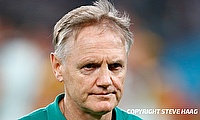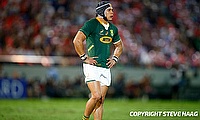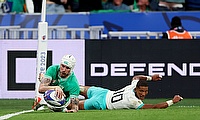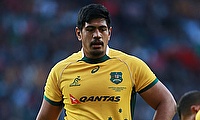Western Force suffers Super Rugby axe as Bill Pulver steps down from ARU role
Australia Rugby Union (ARU) boss Bill Pulver has announced his decision to step down from his role following the announcement of the board's decision to terminate the Western Force franchise from the Super Rugby competition.
Pulver's original five-year term was due to end in February next year but now he has opted against re-appointment and will leave the post once his replacement is found.
Speaking in a press conference, Pulver said it's time for a 'clean slate' in Australian rugby.
"Sport is a difficult business and we've had a really difficult year and the issues surrounding Super Rugby have galvanised my thoughts on my tenure," said Pulver.
"It's a good time for a renewed leadership, a clean state, a new generation of rugby.
"It's the right time for a change, a period of renewal, a fresh set of eyes and ears in order to take us on to the next generation."
The removal of Force from the competition followed by the cut of Kings and Cheetahs has resulted in reduction of teams to 15 for the next season of Super Rugby, even though the Perth franchise has decided to challenge the matter legally.
ARU Chairman Cameron Clyne stated that the move to cancel the license of Western Force was taken after consultation with the rugby bodies and stakeholders, including government and commercial partners.
"The ARU Board has today made the decision to discontinue the Western Force as the Super Rugby competition reverts to 15 teams for the 2018 season," Clyne said in a statement.
"This has been a complex process to reduce Australia's Super Rugby representation to four teams as agreed by SANZAAR following its review of the competition," he said, referring to the league's governing body.
Clyne also threw his weight behind Pulver and insisted he has been unfairly criticised in the issue.
"It's fashionable to blame Bill for everything that goes wrong in Australian Rugby," said Clyne.
"Bill has copped an incredible amount of unfair personal criticism ... but has never shirked from that.
"He has always represented the game extremely well and he should be very proud of that and the service he's given the game.'
Clyne also pointed out financial instability playing a major role leading to the ouster of Western Force franchise and described it is a 'sad day' for rugby.
"Our decision to exit the Western Force has been guided primarily by financial outcomes.
"As we have reinforced throughout this process, there are commercial realities which are linked to declining on-field performance across our Super Rugby teams which has put Australian Rugby in a position where it can no longer sustain five teams.
"This is a sad day for rugby, especially for Western Force fans. We accept that there will be anger and resentment over this decision, and we sympathise with those fans. We sincerely hope that they are not lost to the game forever.
"The decision to exit the Western Force from Super Rugby is not a decision to abandon the game in Western Australia.
"Western Australia will retain an important place in Australian rugby, and the ARU will continue to support youth development programs and the community game in the west. There will be a clear pathway for young Western Australian rugby players to reach the highest level and represent the Wallabies.
"Our immediate concern is to support the individuals at the Western Force through these difficult circumstances, and we will deploy various ARU management staff to Western Australia to provide assistance to all players and staff."








